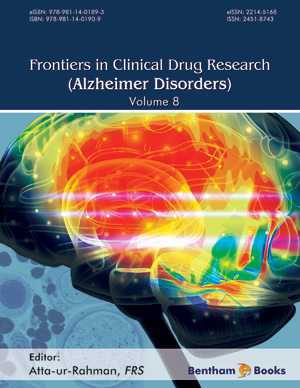Abstract
Alzheimer´s disease (AD) is an irreversible neurodegenerative disorder and one of the main aging-dependent maladies of the 21st century. Around 46 million people suffer from AD worldwide and this is projected to double within the next 20 years. Due to the progressive aging of the population and the prediction of an increase in the incidence of this disease, AD constitutes a serious familial and social health problem. Therefore, it is necessary to find new therapeutic strategies which are aimed to prevent, delay the onset, slow the progression and/or improve the symptoms of AD. Currently, the research is focused on finding and identifying new drugs for achieving these goals.
In this chapter of the book, we widely review the neuroprotective role that some antibiotics could play in AD, because these drugs reach the brain quickly and are relatively inexpensive. Likewise, we have found evidence in both in vitro and in vivo studies and also in some clinical trials. In summary, all the reviewed antibiotics exert neuroprotection because they act on the main pathophysiological features of AD. Nevertheless, it must be taken into account that a long-term treatment with antibiotics could cause adverse effects including antibiotic resistance. Thus, properly clinical trials should be carried out in order to corroborate benefits of these antibiotics in people with AD.
Keywords: Alzheimer´s Disease, Amphotericin B, Amyloid β, Antibiotics, Azithromycin, Clioquinol, Dapsone, Doxycycline, Minocycline, Tetracycline Rapamycin, Rifampicin.






















